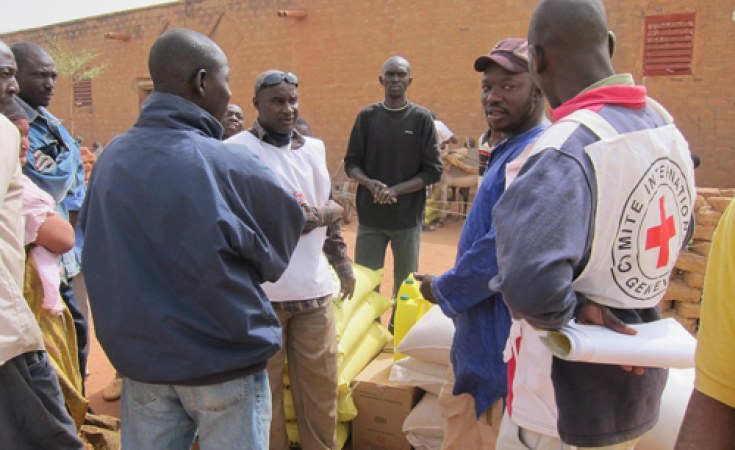As conflict continues in Mali, the international community will need to support aid agencies to prevent a worsening of the humanitarian situation.
As French and Malian troops push north in Mali to recover territory gained by Islamist militants, the UN Refugee Agency renewed its warning that increased aid is vital to prevent a worsening of the humanitarian situation.
There had been reports of rebel forces carrying out executions and amputations on civilians. And in the conflict-affected areas food and fuel are in short supply. Over 230,000 people have been displaced within Mali while over 140,000 people have fled to other countries in the Sahel region. Mali and its neighbours were already in a weakened state due to the recent drought.
Critical to relief efforts are feeding programmes, especially those for children who are the most vulnerable to malnutrition. The UN World Food Programme (WFP) is running an emergency operation which provides "food assistance, nutritional support and emergency school feeding to 564,000 vulnerable people affected by the crisis". This includes Plumpy'Sup, a peanut paste used to prevent deadly malnutrition in children under the age of five.
WFP is however in desperate need of funding of close to $200 million for both its operation inside Mali and relief for refugees who have fled to other countries.
The McGovern-Dole programme, named after former Senators George McGovern and Bob Dole, is also funding school meals for children in Mali. Catholic Relief Services (CRS) receives the funding and provides the food. Helen Blakesley of CRS says the programme is feeding more than 75,000 children at primary and secondary schools in the Mopti and Koulikoro areas.
Kristina Brayman, who runs the CRS school program in Mali says, "It means children receive a hot, nutritious meal each day, using US-donated food complemented by both local foods from school gardens and purchased through funds collected by the community. Without that food, many students would not eat a square meal at all. It motivates parents to send their children to school, especially girls, and means the children are able to grow, develop, and maximise their learning potential. It really is essential."
The McGovern-Dole programme will have its future funding decided in the US Congress soon. The programme in Mali is an example of what a difference this humanitarian aid can make.
As the conflict and hunger persist in Mali, the international community will need to support aid agencies.
William Lambers is the author of Ending World Hunger: School Lunches for Kids Around the World. His other books include The Roadmap to End Global Hunger, The Road to Peace and The Spirit of the Marshall Plan: Taking Action Against World Hunger.


